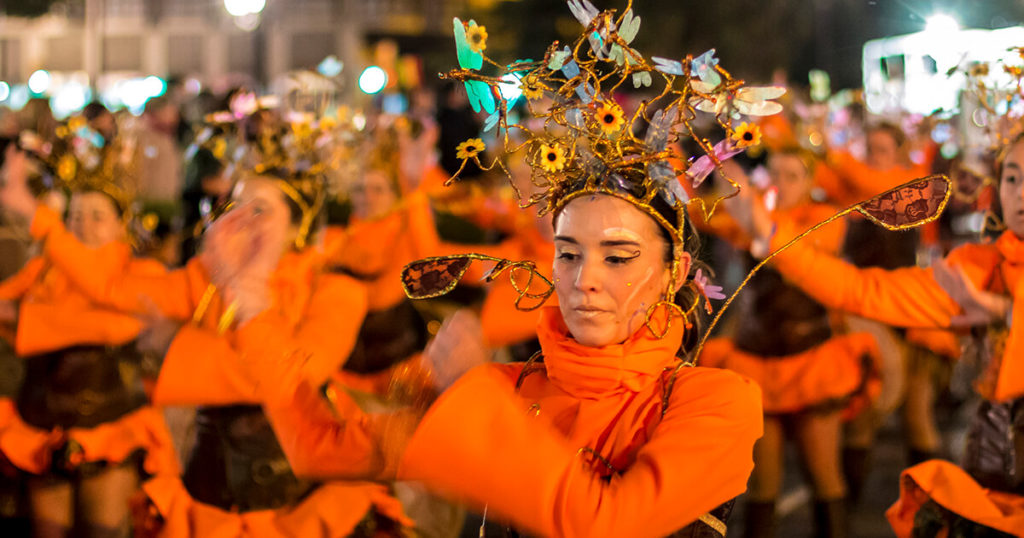
Carnival in Asturias is called Antroxu, and it falls late this year, March 5; last year it was early, coming in mid February. No matter what the month or weather, people celebrate, and the streets of Gijón, where I live, fill with costumed people—children for a week before the day, and older kids and adults on the weekend before, and then on Monday, too, when in the evening there is a parade with floats and dancers. Long afterward, people still crowd the streets, families with children congregating in parks or squares while groups of friends make their way from bar to bar, celebrating. The merry-making will go on until the wee hours, and for some all night, since the next day is a local holiday here, and neither workers nor students need to show themselves early. Once people do get up, many will be out on the street again, making merry.
Carnival is an old celebration, a mix of pagan and Christian traditions. During the Spanish Civil War, Franco prohibited carnival celebrations as unseemly, and then afterward extended the prohibition for the entire period of the dictatorship, which lasted 40 years. The Church concurred. Typical celebrations, full of mockery and role-playing and comedy, with many masked people, didn’t accord with the respect due the Church and, more to the point for those in power, was an ideal vehicle for criticizing the regime. Or for hatching a plot.
In Tenerife and Cádiz, where Carnival was especially important, strictures were eventually loosened and people were allowed the same celebration under a different name—festival de invierno, winter celebration—but with masks prohibited. With the end of Franco’s rule in the mid-’70s, Carnival returned to its former importance.
The only celebration to rival it is futbol, which in English we call soccer, where young and old, women and men, don their team’s colors, make for the stadium, and have raucous communion with their fellows, either for or against the home team, not just once a year but dozens of times. Between close rivals, things can get ugly. The Spanish aren’t British hooligans, but from the stories in the newspapers, they appear to aspire to hooliganism. I wouldn’t call it innocent fun—fans taunt and even attack one another on the streets before a game, and when the rival teams of Sporting Gijón and Real Oviedo met in Gijón for the first game after 14 years in different divisions, the National Police were deployed to keep order. But the only nefarious plot is keeping the teams prosperous and the owners rich, their business subsidized by the local government. Maybe Carnival would have posed no threat to Franco had he been able to pit the Tinerfeños of Tenerife against Cádiz’s gaditanos, and then stepped back, out of the way, to enjoy the spectacle. Naturally, they would have made it worth his while if he’d made it worth theirs.

